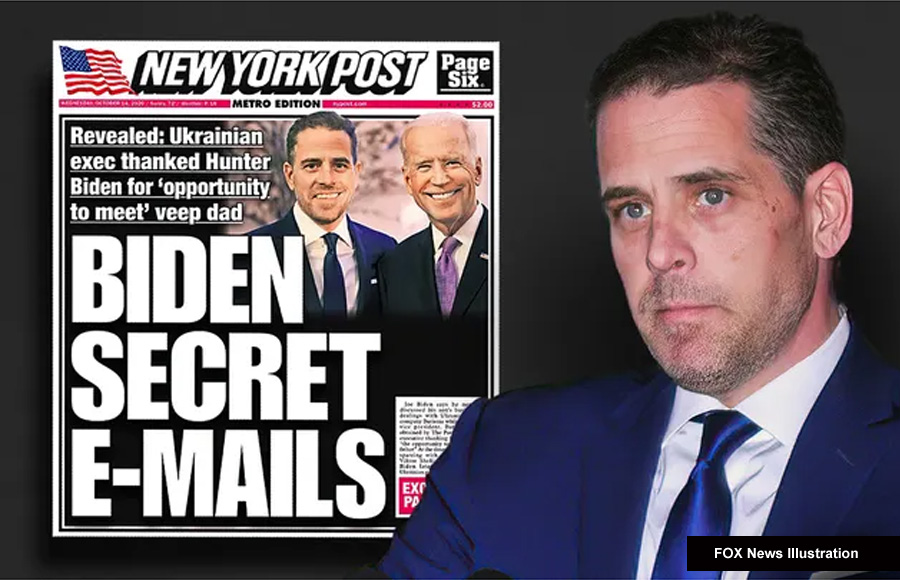
WASHINGTON, D.C. – A former intel official who had signed a joint letter condemning Hunter Biden’s infamous “laptop from hell” as “Russian Disinformation” recently admitted in an interview that he felt at the time the contents actually “had to be real” and that it was “no surprise” to him when that was later revealed to actually be the case.
Hunter Biden’s laptop was left in a computer repair shop in Delaware in 2019 and eventually turned over to the FBI by the establishment’s owner. Subsequent reports by multiple legacy media groups dismissed the contents of the laptop – including emails, text messages, photos and financial records documenting illicit behavior and potentially illegal business dealings with foreign entities – as “Russian disinformation.”
However, the laptop and its contents were later verified by both The New York Times and Washington Post – two outlets who had initially derided it as “fake” – as being completely legitimate.
Douglas Wise, a former Defense Intelligence Agency deputy director and former senior CIA operations officer, was among the 50 former intel officials that the contents of Hunter’s laptop had “all the classic earmarks of a Russian information operation.”
“We are all individuals who devoted significant portions of our lives to national security. We are all also individuals who see Russia as one of our nation’s primary adversaries,” the letter co-signed by Wise read. “It is for all these reasons that we write to say that the arrival on the US political scene of emails purportedly belonging to Vice President Biden’s son Hunter, much of it related to his time serving on the Board of the Ukrainian gas company Burisma, has all the classic earmarks of a Russian information operation,” they wrote.
However, in a Sunday interview with The Australian, Wise admitted that he and many of his colleagues believed at the time that most of the laptop’s contents actually “had to be real.”
“All of us figured that a significant portion of that content had to be real to make any Russian disinformation credible,” Wise said, adding that he nonetheless did not regret signing the letter, and that it later ended up being “no surprise” to him when the laptop was found to be 100 percent real.
It is alleged by conservative news sources that the letter in question – along with legacy media and social media’s attempted suppression of the laptop story in general – could have played a role in affecting the outcome of the 2020 presidential election.



Comments are closed.